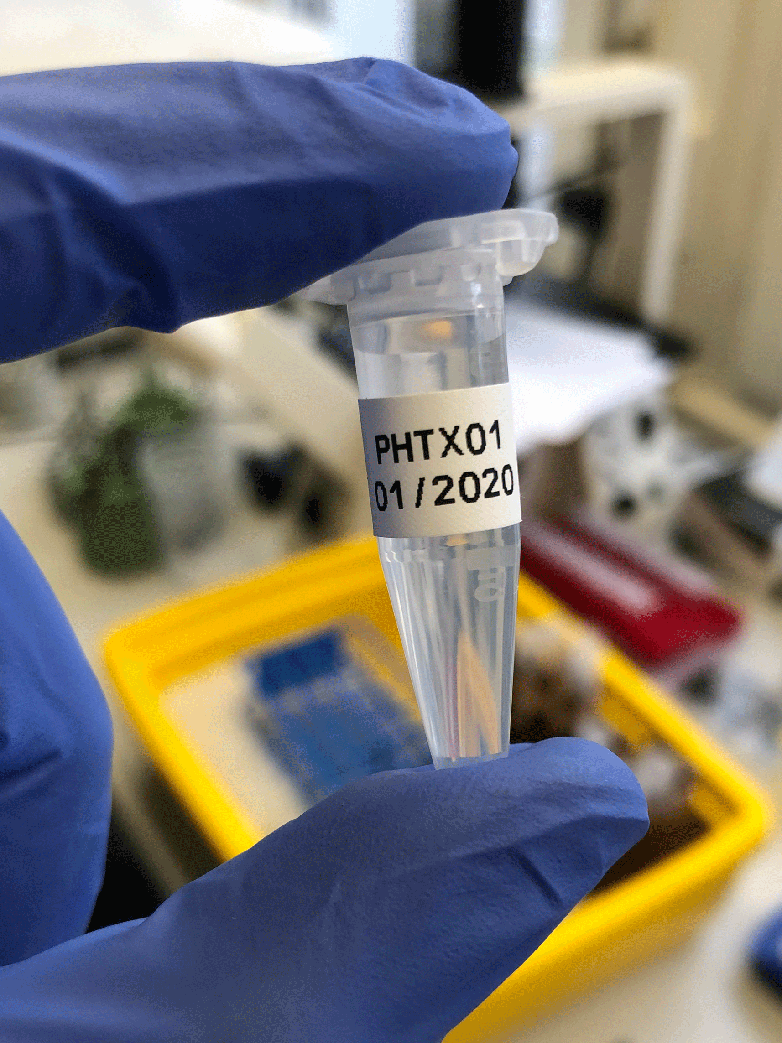
The ampoule contains the molecule
prototype (photograph: in courtesy of Jonathan Kiefer)
“Our immunotherapy approach is much more targeted than intensive chemotherapy,” Kiefer explains. “If it proves itself in clinical trials, then in the future we could perform roughly 150,000 stem cell transplants globally instead of the current figure of 50,000. In other words, three times as many patients as today would have a chance at recovery.” This goal still lies a long way off, however. “It will probably still be a couple of years before we can test the antibodies on people,” Kiefer predicts.
The 31-year-old biotechnologist was born and raised in Munich. While studying for his Bachelor’s degree in Heidelberg, he gained his first practical experience in the lab at the German Cancer Research Center. His focus was on antibodies even then. “I’ve always searched for the connection to real-life application,” Kiefer says.
When it was time for his Master’s degree studies, Kiefer chose ETH Zurich based on its good reputation. After a brief research visit to MIT in Boston, he came back to ETH Zurich for his doctorate, where, as part of Professor Dario Neri’s research group at the Institute of Pharmaceutical Sciences (IPW), he developed his bispecific antibodies.
Pausing work in the lab
While working on his doctorate, Kiefer collaborated closely with the team under Markus Manz from the University Hospital Zurich. He now aims to use his Pioneer Fellowship to resume this successful collaboration. Pioneer Fellowships support individuals who want to found a spin-off with a salary and a well-equipped workspace for 18 months. The fellowship program also includes training and business courses as well as coaching from experienced entrepreneurs.
Kiefer started his fellowship this past February, but coronavirus measures forced him to stop his work in the lab relatively soon after. “I’m using the time to fine-tune my business case and to reach out to venture capital companies about follow-up funding,” Kiefer says.
Developing a new medication has always been a dream of Kiefer’s. He knows that the chances of success are slim: out of the numerous biotech start-ups, only a few manage to actually bring a new therapy to market. But he also knows that he can count on the support of his mentors, Neri and Manz. “This puts me in an excellent position to go about creating a company,” Kiefer says. Facing the manifold uncertainties on the path to commercial success calls for courage.
For Kiefer, one thing is clear: “The molecule deserves a chance to be developed further. These antibodies have the potential to revolutionise the standard of therapy for acute myeloid leukaemia, and they may also be useful in other areas of regenerative medicine,” he says.